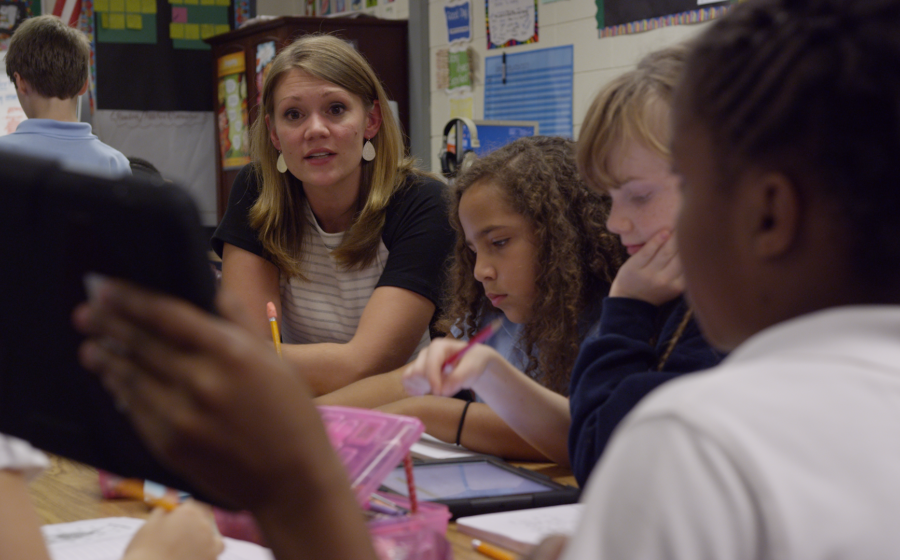How to Prepare Now for Storm-Induced Power Outages as Severe Weather Increases
(NewsUSA) - In the United States, severe weather events continue to increase on an annual basis, and with that comes the growing threat of power outages. During National Preparedness Month in September, experts recommend developing a plan to stay safe during a storm-induced power outage, including determining the best backup power options for your home and lifestyle.
- In the United States, severe weather events continue to increase on an annual basis, and with that comes the growing threat of power outages. During National Preparedness Month in September, experts recommend developing a plan to stay safe during a storm-induced power outage, including determining the best backup power options for your home and lifestyle.
A recent study from Texas A&M University found that the U.S. has experienced a 20% annual increase in power outage severity since 2019. With that has come increases in the length and frequency of power outages with more customers being affected annually.
Areas that have reported some of the highest risks of weather-induced blackouts fall along the coastlines and in the Great Lakes regions – areas that commonly see severe weather like hurricanes, tornadoes or powerful thunderstorms.
“As the number of severe weather events rise, so too has the number of blackouts,” said Kyle Raabe, President of Consumer Power for Generac Power Systems. “In 2024, the U.S. had nearly 1.5 billion electric outage hours, which was the most since Generac began tracking this statistic. Homeowners should prioritize backup power to plan for their own safety and security during a storm-induced outage.”
For National Preparedness Month, the power outage experts at Generac advise people to make a plan for severe weather that includes a source of backup power and to identify the backup power option that will best fit their home’s needs in the next outage.
Several options exist for those looking to secure backup power in emergency situations. Each has advantages and drawbacks, and the choice will depend on individual needs, budget and the specific risks posed by the local climate.
- Home Standby Generators are not only a more permanent solution but also the most reliable option. These units are installed outside the home and are connected directly to the electrical panel. Standby generators are powered by natural gas or propane and automatically activate when utility power is disrupted, allowing for continuous power for extended periods of time. This makes them ideal for homes in areas prone to frequent or prolonged outages.
- Portable Generators, also known as open frame generators, are an ideal option for emergency backup power. Fueled by gasoline or liquid propane, portable generators can power the whole home or connect to individual appliances with an extension cord. While larger than inverters and portable power stations, portable generators include features like handles and tires for easy positioning.
- Inverter Generators are an efficient, lightweight portable generator, perfect for those who want a compact but powerful backup power solution. Unlike classic portable generators, inverter generators are fully enclosed and operate quietly. The easy start function is a distinct benefit of inverter generators, which start with the turn of a dial instead of the manual pull cord used on larger generators.
- Battery-Powered Portable Power Stations are an emission-free option that doesn’t require fuel, offering a backup power source designed for both indoor and outdoor use. Ideal for condos or apartments, they are even quieter than inverter generators, operating without any sound. Portable power stations are the smallest backup power option and can power a wide range of electronics that are crucial during an outage, including phones, refrigerators, sump pumps, laptops and more.
The 2025 fall and winter seasons are expected to bring a high risk of extreme weather events, making backup power solutions a preparedness priority. Hurricanes and severe storms can significantly damage the power grid, leaving homes without electricity for days or weeks.
A backup power source is not just about convenience; it’s about being prepared for the unexpected. The peace of mind that comes from knowing you can maintain essential functions, such as heating, cooking, and communication, during a power outage is invaluable. Generac is a global leader in energy technology and offers information and resources at https://www.generac.com/prepare/


 - For most kids, the back-to-school season means catching up with friends, shopping for supplies, and falling back into familiar routines – military kids face a different reality. They’re often walking into yet another new school, in yet another new city.
- For most kids, the back-to-school season means catching up with friends, shopping for supplies, and falling back into familiar routines – military kids face a different reality. They’re often walking into yet another new school, in yet another new city.
 - With the fall season here and parents settling into back-to-school routines, now is an ideal moment to ensure preschoolers are getting the best care and education possible for the year ahead. For many families, this means seeking programs that offer more than just a few hours of pre-K, and that align with family schedules and budgets.
- With the fall season here and parents settling into back-to-school routines, now is an ideal moment to ensure preschoolers are getting the best care and education possible for the year ahead. For many families, this means seeking programs that offer more than just a few hours of pre-K, and that align with family schedules and budgets.  -
-  “Animal Control” by Jonathan R. Miller
“Animal Control” by Jonathan R. Miller “Maya Blue: A Memoir of Survival” by Brenda Coffee
“Maya Blue: A Memoir of Survival” by Brenda Coffee “Night of the Bear” by Alan Cockrell and Richard Hess
“Night of the Bear” by Alan Cockrell and Richard Hess BookTrib’s Lit Picks: 36 Free First Chapters from the Hottest Books of 2025
BookTrib’s Lit Picks: 36 Free First Chapters from the Hottest Books of 2025 - From safer football helmets to groundbreaking laws that protect inventors, this year’s Intellectual Property Owners Education Foundation (IPOEF) award winners prove that one idea, when protected, can change everything.
- From safer football helmets to groundbreaking laws that protect inventors, this year’s Intellectual Property Owners Education Foundation (IPOEF) award winners prove that one idea, when protected, can change everything.
 - Cybercriminals send
- Cybercriminals send 
 - While no one plans to have a baby early,
- While no one plans to have a baby early, 
 - From hospitals to surgical centers, med spas to even your dentist’s office—chances are, you or someone in your family has already received medication from a compounding pharmacy without even knowing it.
- From hospitals to surgical centers, med spas to even your dentist’s office—chances are, you or someone in your family has already received medication from a compounding pharmacy without even knowing it.
 - As the school year gets underway across the United States, a new report illustrates that student engagement is essential for learning, but gaps remain about how to achieve, measure, and sustain students’ interest in the classroom.
- As the school year gets underway across the United States, a new report illustrates that student engagement is essential for learning, but gaps remain about how to achieve, measure, and sustain students’ interest in the classroom. 
 - The anti-inflammatory medication dupilumab, marketed as Dupixent, is the subject of a lawsuit alleging a link between the use of the medication and the development of a type of skin cancer known as cutaneous T-cell lymphoma (CTCL).
- The anti-inflammatory medication dupilumab, marketed as Dupixent, is the subject of a lawsuit alleging a link between the use of the medication and the development of a type of skin cancer known as cutaneous T-cell lymphoma (CTCL).